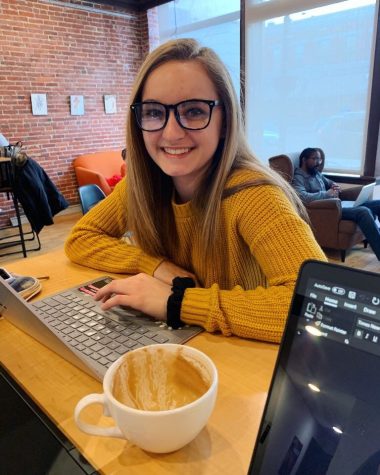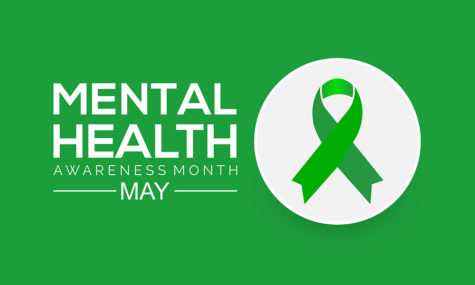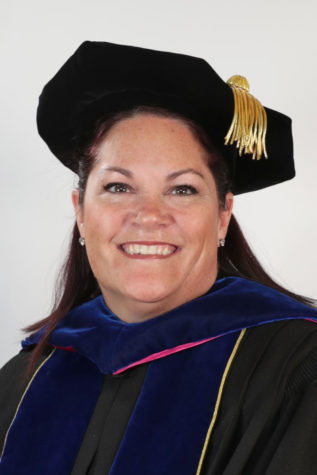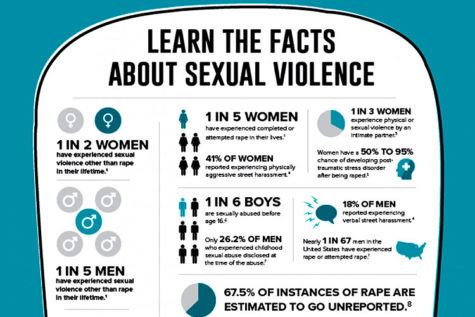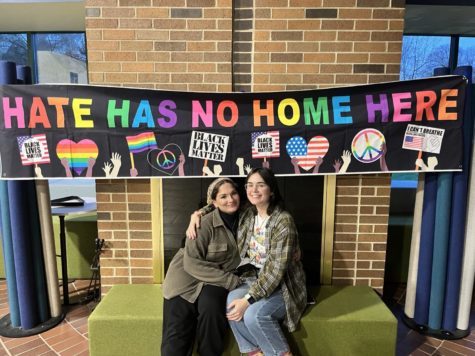Mercyhurst supports Sexual Assault Awareness Month
April 13, 2020
Stores, businesses and schools may be closed, but this does not stop The National Sexual Violence Resource Center (NSVRC) from commemorating the 19th Annual Sexual Assault Awareness Month. Since its official inception in 2001, the goal of this campaign has been to raise public awareness about harassment, assault and abuse through special educational opportunities on how to prevent and report it.
“Sexual assault for centuries was an event that was kept secret which prevented people from understanding how frequently it occurred, how damaging it was and how critical it was to stop it,” said Judy Smith, Ph.D., executive director of wellness at the Cohen Health Center. “Victims were often too ashamed to speak up; and when they did, they were often blamed for ‘allowing’ assault to happen.”
This year’s NSVRC campaign, entitled “I Ask,” strives to normalize asking for consent for both in person and online interactions.
A statement on the organization’s website reads “In light of the COVID-19 pandemic, more people are interacting online and via technology, and this year’s campaign is raising awareness that consent is essential in all interactions, whether face-to-face or virtually.”
While continuing to practice social distancing, people can still get involved with the campaign through educating themselves about issues relating to sexual assault and dispelling many of the surrounding misconceptions.
“These misconceptions often shift responsibility and blame from the assailant to the victim,” said Michael Madonia, M.S.W., project manager of Mercyhurst’s Empowerment and Prevention Project (MEPP). “Understanding the misconceptions surrounding sexual assault may help you in your recovery. What happened to you was a crime. You are not to blame for the assailant’s behavior.”
Sexual assault can happen to any person regardless of age, gender, race, prior behavior or what they are wearing at the time of the attack. The same diversity can be said for assailants as well.
“When most people think of sexual assault, they picture a violent and pervasive attack by a stranger,” said Smith. “While such tragic events definitely do occur, often sexual assault is not perpetrated by a stranger.”
According to the Department of Justice, sexual assault can refer to any nonconsensual sexual act as prescribed by federal, tribal or state law, including all situations when the victim lacks the capacity to consent.
“Victims of sexual assault may or may not have a name for what just occurred. They often are frightened, confused and afraid of being blamed and judged,” said Smith. “This can limit willingness to report the event, to seek medical care as needed or to reach out for help and support.”
If someone discloses that they have been sexually assaulted, it is important to provide support for the individual. The first step is to provide a listening ear.
“Listen more than you talk, believe the person, tell them you believe them, encourage them to get professional help, offer to help them get help, tell them they are not alone and encourage them to NOT blame themselves,” said Madonia.
“Encourage the person to reach out for counseling and advocacy supports and assure the person these are confidential services,” said Smith. “If the student wants to report what occurred, but is afraid, offer to accompany the student, or to call one of the above services for added information.”
There are numerous free resources available on the Mercyhurst Campus including Police and Safety, the Title IX office and the campus Counseling Center. The Counseling Center is particularly important as it provides 24/7 response for emergencies such sexual assault and dating violence.
“The center will make the victim aware of how to report, explain the process, discuss what the person sees as the “pros” and the “cons” and support the person regardless of their choice,” said Smith. “The center can continue to meet with the person on an ongoing basis for counseling.”
Madonia adds that representatives from the Crime Victims Center and SafeNet, two Erie based rape and domestic violence organizations, keep regular office hours in the Counseling Center.
Mercyhurst launched UASK in fall of 2019, a real-time personal security application that features panic buttons that will contact campus police and local emergency personnel, in addition to having the ability to alert friends and family with emergency messages and GPS location.
Though most students are not currently residing on campus, many of these resources are still made available. The Counseling Center is continuing to support the Mercyhurst community through teletherapy, which is available to any student that resides in Pennsylvania. For those residing outside of Pennsylvania, the Counseling Center is available to assist you in attempting to find options in your hometown.
The Mercyhurst Empowerment and Prevention Project (MEPP) can provide information about on-campus and local resources for victims of sexual assault, dating and domestic violence and stalking.
National resources are also available, such as the National Sexual Assault Online Hotline, by calling 1-800-656-HOPE (4673) or the National Domestic Violence Hotline (1-800-799-SAFE).

